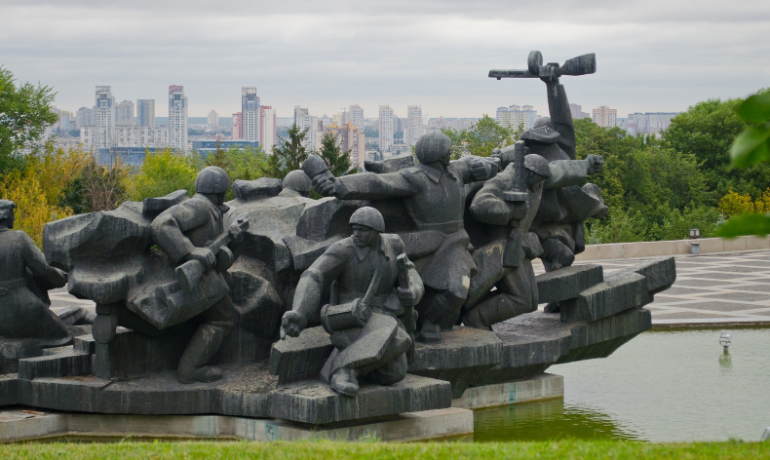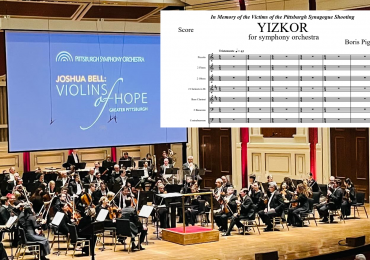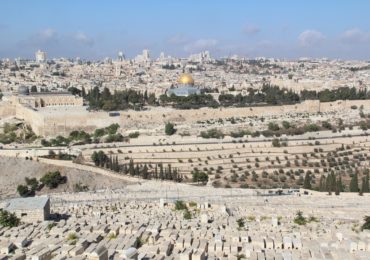

Related posts

Nov, 2023: Yizkor
For Symphony Orchestra
- Duration: ca. 16 minutes
- Picc, 2 Fls, 2 Obs, 2 Cls, B.Cl, 2 Bsns, C.Bn, 4 Hns, 3 Tpts, 3 Tbns, Tba, Timp, Perc (3), Str.
Yizkor (May (God) remember) is an Ashkenazi Jewish memorial prayer service for the dead. The service concludes with the prayer “El male rachamim” (“God full of Mercy”).
Yizkor for symphony orchestra was written in memory of the victims of the Pittsburgh Synagogue shooting.
In this work, I tried to express a wide range of feelings caused by this tragedy: pain, grief, anger, inner emptiness and confusion, and deep sadness. The piece ends with the traditional melody of the prayer “El male rachamim”.
Yizkor was commissioned by the Pittsburgh Symphony Orchestra to commemorate the five years Anniversary of the “Tree of Life” Synagogue tragedy.
The world premiere took place on November 26, 2023, in Pittsburgh, USA at the Violins of Hope concert.

Jerusalem
- Duration: ca. 17 minutes
- SO: Picc, 2 Fls, 2 Obs, 2 Cls, B.Cl, 2 Bsns, C.Bsn, 4 Hns, 3 Tpts, 3 Tbns, Tba, Timp, Perc, Hp, Cel, Str.
- SWB: Picc, 2 Fls, Ob, Bsn, 3 Cls, B.Cl, 2 A.Sxs, T.Sx, B.Sx, 4 Hns, 5 Tpts, 4 Tbns, Bar, 2 Tbas, Harp, Str.B, Synth, Timp, Perc
The inspiration behind this work is a city at the centre of three religions – Judaism, Christianity and Islam, City whose name means “peace”, and whose fate is war, City which has known pain and joy, destruction and renewal, sadness and hope, City whose past is submerged in blood. As for its future… Would anybody dare to say that he knows it?
The poem Jerusalem exists in three versions: for solo piano, for symphonic wind band, and for symphony orchestra.
I wrote the piano version in 1991, and revised it in 2002 and in 2009.
Below is a recording of the 2002 version, performed by Michael Zelevinsky in Jerusalem.
The final piano version premiered in 2014 in Paris, at the first COMPETITION-FESTIVAL – modern piano repertoire, performed by Olivier Seuzaret.
Jerusalem for Piano was published in 2015 by Le CHANT du MONDE, Editions Musicales (in France).
In 2017, this work was performed several times by Albanian pianist Almira Emiri. Below is a recording from YouTube.
In 2012, I wrote the symphonic wind band version.
It was premiered in 2013 by the Petach-Tikva Conservatoire Wind Orchestra, conducted by Michael Delman.
Below is an audio recording of that performance. Although both the orchestra and the recording are not professional, the performance was very enthusiastic and presents a favorable rendition the work.
I wrote the initial version for symphony orchestra in 1993, shortly after I wrote the piano version. However, I was not satisfied with the result; I’ve added a lot of additional content to orchestral version, and the combination resulted in a musical structure that lacked cohesion.
After I wrote Holocaust Requiem in 1994-1995, my attitude towards orchestration changed. As result,I put aside Jerusalem until autumn 2017, when I prepared a new version.
Below are recordings of the piano solo version and of the symphonic wind band version.